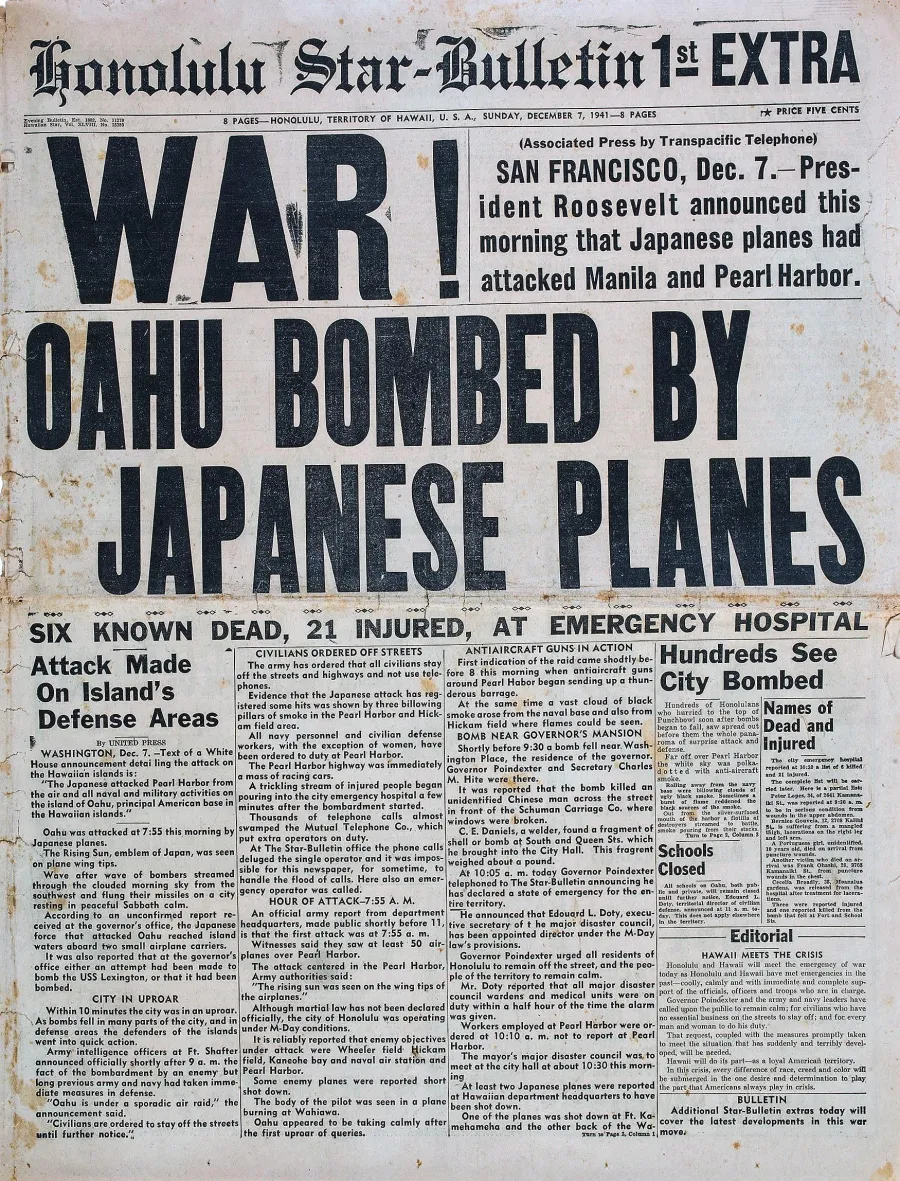Union members helped swell the ranks of volunteers after Pearl Harbor

EDITOR'S NOTE: The reaction of Kentucky unions to Pearl Harbor can be found in my book, Kentuckians and Pearl Harbor: Stories from the Day of Infamy (Lexington: University Press of Kentucky, 2020) https://www.kentuckypress.com/9781949669275/kentuckians-and-pearl-harbor/
By BERRY CRAIG
AFT Local 1360
The Japanese surprise attack on Pearl Harbor 80 years ago today plunged the U.S. into World War II. It also triggered a tsunami of volunteers for military service that included many union members or men who came from union families.
My two uncles, the sons of union parents, joined the Army.
President Franklin D. Roosevelt declared war on Japan on Dec. 8, 1941. Germany and Italy declared war on the U.S. three days later.
Immediately, organized labor promised to do all it could to help achieve victory over our enemies.
Kentucky State AFL President Alexander Jeffrey and Secretary-Treasurer Edward H. Weyler—both World War I veterans—issued a joint statement condemning the air raid on Hawaii as a "malicious attack by those who despise our form of government.” They urged rank-and-filers “as true trade unionists” to be prepared to make any “personal and collective sacrifices necessary” to beat the Japanese -- and Hitler and Mussolini, who declared war on the U.S. on Dec. 11.
They called on union members to not strike “until every avenue of adjustification has been thoroughly exhausted” and urged them to contact the AFL before considering “drastic steps.”
The duo encouraged workers to buy war bonds and ended their statement with a ringing appeal: “We toiled and sweated to build the nation. Some will die defending it. Let us all defend the nation as freely as we have used it.”
Peter Campbell, president of the Kentucky Congress of Industrial Organizations, said his group was making plans to create committees in CIO plants to maximize war production and to report to management “anything which appears to be interfering with or threatening capacity production.” A member of the U.S. Secret Service in World War I, Campbell cited a 1939 C.I.O. resolution pledging his labor group to “a determined and whole hearted support of the great national effort, including 100 percent production, and the rooting out of every form of sabotage and subversive influence.”
In addition, the AFL and CIO moved swiftly to help boost war production in Louisville and its environs. John Grigsby, secretary of the CIO’s Kentucky Industrial Union Council, announced that a drive had begun to get defense plant workers to donate 80,000 man-hours of Sunday work.
Workers would give up sabbath double-time pay they were due and put the lost wages toward buying war bonds and contributing to the United Service Organizations, the USO. “We’re not going to win this war with snowballs,” Campbell said. “It’ll take hard work and lots of it. Proprietors have already indicated they’re with us.”
The five-hundred-strong National Maritime Union at Jeffersonville Boat and Machine Company voted to join the program in cooperation with the company president. Weyler said the state AFL “will insist on full cooperation of union members in the expansion of defense industries.”
Louisville Mayor Wilson Wyatt praised the union groups for approving a joint resolution promising “unlimited support to national, state and local governments.” They approved the measure on December 15; Pat Ansboury, business agent for truck drivers’ and dairy employees’ union locals in the city, presented the resolution to the mayor. “I know those are your convictions and I know they will be translated into action when you are called upon,” said Wyatt, a Democrat. All of us are going to have to sacrifice time, effort and money, some of us our lives, and when the crisis of war is over we face an economic and political crisis that’s going to require the united efforts of all of us to solve democratically.”